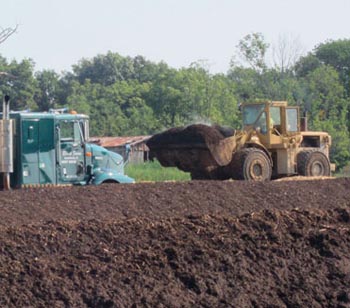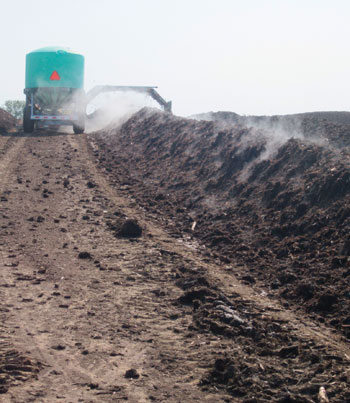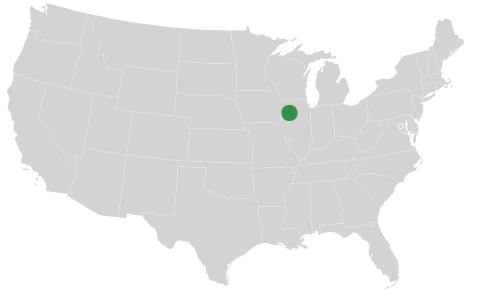In the summer of 2012 the Continental U.S. faced its worst drought in recent history. Dry conditions across the Midwest decimated many farmers' grain harvests. Illinois farmer Scott Block was among the victims of the drought and suffered severe crop losses, particularly among his corn and soy crops. But thanks to his on-farm composting program, Block found a way to cut his losses in the aftermath of the drought, and in the case of a late planted oat forage, he discovered the potential of compost to increase the yield of forage crops on his farm.
Yield of Forage Crops Increased by High Quality Feedlot Waste Compost
Tags: soil fertility, fertilizer, on-farm composting, feedlot industry
Feedlot Waste is the Start of a Revenue Generating Compost Business
When Illinois feedlot owner, Scott Block, began composting his feedlot waste, he discovered a new and profitable source of income for his farm. Block raises 640 beef cattle in an old model of farming where the cows, in the form of meat, add value to his grain crops. His composting, which he began in the fall of 2011 as manure management, has quickly turned into a profitable business that is becoming a major income-generating element of his farm.
The start of a new business
Scott Block's motivations for composting were simple: First, he wanted to reduce costs associated with hauling and spreading his manure and feedlot waste. And second, he wanted to enhance the fertilizer value of this manure and waste to supplement his fertilizer needs across his 1,700 acres of cropland. His long-term goal is to completely replace all his commercial fertilizer needs with the high quality compost he produces with his Aeromaster pull-type compost turner. “We actually didn't apply any dry fertilizer last year, we strictly went with one ton to the acre of compost on our corn ground. And then we applied nitrogen later on,” he said. “I wasn't recommended to go that crazy, that fast, but our crops yielded just as well as anyone else's. That's our goal, to get away from all commercial fertilizer if we can.”




